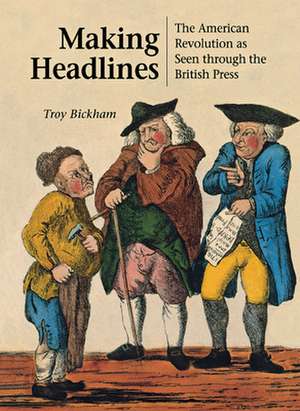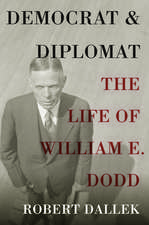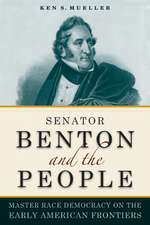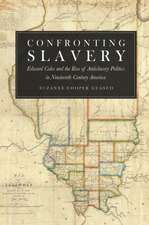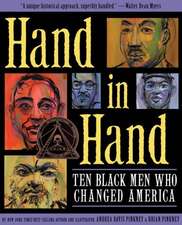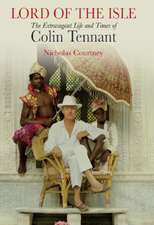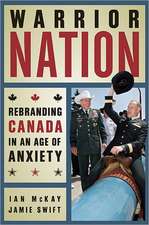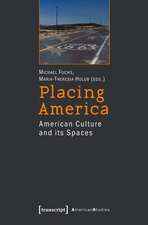Making Headlines: The American Revolution as Seen through the British Press
Autor Troy Bickhamen Limba Engleză Hardback – 29 oct 2008
The War for American Independence was essentially a civil war throughout the colonies: loyalists and patriots who had grown up together as countrymen found themselves fighting on opposing sides. Troy Bickham asserts that the war proved almost as divisive in the motherland, as the British wielded the almighty pen and went to battle on the pages of the press in Britain. Surpassing the breadth of previous studies on the subject, Making Headlines offers a look at the British press as a whole—including analysis of London newspapers, provincial newspapers, and monthly magazines.
The free press in Britain, Bickham argues, was too widespread and too lucrative to be susceptible to significant government interference and therefore provided in-depth coverage on all aspects of the war. Private letters, official dispatches, extracts from foreign newspapers, maps, and detailed tables of fleet strengths and locations filled the pages of daily publications that provided more extensive and more rapid information than even the government could. Due to the inexpensive and easily accessible printed news, the average British citizen was often as well informed as a cabinet minister. The open editorial nature of the press also allowed someone as socially low as a blacksmith’s wife, under the cloak of anonymity, to scrutinize and offer commentary on every political decision and military maneuver, all in front of a national audience.
Bickham adeptly leads the reader on an exploration into the varied national debates that raged throughout Britain during the American Revolution, one of Britain’s historically most unpopular wars. The British public debated how to defeat George Washington—whose perseverance and conduct was much admired in Britain—whether captured Americans should be held as prisoners of war or hung as traitors, and the morality of including American Indians in the war effort. Making Headlines also reflects the global perspective of the war held by most Britons, who saw the conflict not only as a fight for America but also as a struggle to protect their worldwide empire as America’s European allies turned the conflict into a world war, threatening even the British Isles themselves. This study will appeal to those interested in early America, the American Revolution, British history, and media studies.
The free press in Britain, Bickham argues, was too widespread and too lucrative to be susceptible to significant government interference and therefore provided in-depth coverage on all aspects of the war. Private letters, official dispatches, extracts from foreign newspapers, maps, and detailed tables of fleet strengths and locations filled the pages of daily publications that provided more extensive and more rapid information than even the government could. Due to the inexpensive and easily accessible printed news, the average British citizen was often as well informed as a cabinet minister. The open editorial nature of the press also allowed someone as socially low as a blacksmith’s wife, under the cloak of anonymity, to scrutinize and offer commentary on every political decision and military maneuver, all in front of a national audience.
Bickham adeptly leads the reader on an exploration into the varied national debates that raged throughout Britain during the American Revolution, one of Britain’s historically most unpopular wars. The British public debated how to defeat George Washington—whose perseverance and conduct was much admired in Britain—whether captured Americans should be held as prisoners of war or hung as traitors, and the morality of including American Indians in the war effort. Making Headlines also reflects the global perspective of the war held by most Britons, who saw the conflict not only as a fight for America but also as a struggle to protect their worldwide empire as America’s European allies turned the conflict into a world war, threatening even the British Isles themselves. This study will appeal to those interested in early America, the American Revolution, British history, and media studies.
Preț: 342.70 lei
Nou
Puncte Express: 514
Preț estimativ în valută:
65.57€ • 68.65$ • 54.26£
65.57€ • 68.65$ • 54.26£
Carte tipărită la comandă
Livrare economică 05-19 aprilie
Preluare comenzi: 021 569.72.76
Specificații
ISBN-13: 9780875803937
ISBN-10: 0875803938
Pagini: 317
Dimensiuni: 152 x 229 x 30 mm
Greutate: 0.66 kg
Ediția:1
Editura: Northern Illinois University Press
Colecția Northern Illinois University Press
ISBN-10: 0875803938
Pagini: 317
Dimensiuni: 152 x 229 x 30 mm
Greutate: 0.66 kg
Ediția:1
Editura: Northern Illinois University Press
Colecția Northern Illinois University Press
Recenzii
“Making Headlines is an important work, both for newspaper history and for the history of the American Revolution. Based on wide-ranging research, it ably probes the material in a significant uncovering of the public politics of the crisis.”—Jeremy Black, University of Exeter
“An important contribution to the literature. The scholarship is sound . . . the work is original.”—Eliga H. Gould, University of New Hampshire
“An important contribution to the literature. The scholarship is sound . . . the work is original.”—Eliga H. Gould, University of New Hampshire
Notă biografică
Troy Bickham is Assistant Professor of History at Texas A&M University and is the author of Savages within the Empire: Representation of American Indians in Eighteenth-Century Britain.
Cuprins
Table of Contents
List of Tables and Illustrations
Preface
Introduction
Part I. The British Press in the Era of the American Revolution
1. Distribution, Organization, and Readership
2. Politics and the Press
Part II. From Insurrection to World War
3. Crisis and Conflict before Independence
4. The American War
5. The Global War
6. The War that Britain Won and Winning the Peace
Part III. A Transatlantic Civil War
7. The Unlikely Hero: George Washington's Transatlantic Appeal
8. The Controversy of Conducting the War: African Slaves, American Indians, and German Mercenaries
9. Allies or Foes, Republic or Anarchy? Divining America's Future
Conclusion
Notes
Selected Bibliography
Index
Preface
Introduction
Part I. The British Press in the Era of the American Revolution
1. Distribution, Organization, and Readership
2. Politics and the Press
Part II. From Insurrection to World War
3. Crisis and Conflict before Independence
4. The American War
5. The Global War
6. The War that Britain Won and Winning the Peace
Part III. A Transatlantic Civil War
7. The Unlikely Hero: George Washington's Transatlantic Appeal
8. The Controversy of Conducting the War: African Slaves, American Indians, and German Mercenaries
9. Allies or Foes, Republic or Anarchy? Divining America's Future
Conclusion
Notes
Selected Bibliography
Index
Descriere
The War for American Independence was essentially a civil war throughout the colonies: loyalists and patriots who had grown up together as countrymen found themselves fighting on opposing sides. Troy Bickham asserts that the war proved almost as divisive in the motherland, as the British wielded the almighty pen and went to battle on the pages of the press in Britain. Surpassing the breadth of previous studies on the subject, Making Headlines offers a look at the British press as a whole—including analysis of London newspapers, provincial newspapers, and monthly magazines.
The free press in Britain, Bickham argues, was too widespread and too lucrative to be susceptible to significant government interference and therefore provided in-depth coverage on all aspects of the war. Private letters, official dispatches, extracts from foreign newspapers, maps, and detailed tables of fleet strengths and locations filled the pages of daily publications that provided more extensive and more rapid information than even the government could. Due to the inexpensive and easily accessible printed news, the average British citizen was often as well informed as a cabinet minister. The open editorial nature of the press also allowed someone as socially low as a blacksmith’s wife, under the cloak of anonymity, to scrutinize and offer commentary on every political decision and military maneuver, all in front of a national audience.
Bickham adeptly leads the reader on an exploration into the varied national debates that raged throughout Britain during the American Revolution, one of Britain’s historically most unpopular wars. The British public debated how to defeat George Washington—whose perseverance and conduct was much admired in Britain—whether captured Americans should be held as prisoners of war or hung as traitors, and the morality of including American Indians in the war effort. Making Headlines also reflects the global perspective of the war held by most Britons, who saw the conflict not only as a fight for America but also as a struggle to protect their worldwide empire as America’s European allies turned the conflict into a world war, threatening even the British Isles themselves. This study will appeal to those interested in early America, the American Revolution, British history, and media studies.
The free press in Britain, Bickham argues, was too widespread and too lucrative to be susceptible to significant government interference and therefore provided in-depth coverage on all aspects of the war. Private letters, official dispatches, extracts from foreign newspapers, maps, and detailed tables of fleet strengths and locations filled the pages of daily publications that provided more extensive and more rapid information than even the government could. Due to the inexpensive and easily accessible printed news, the average British citizen was often as well informed as a cabinet minister. The open editorial nature of the press also allowed someone as socially low as a blacksmith’s wife, under the cloak of anonymity, to scrutinize and offer commentary on every political decision and military maneuver, all in front of a national audience.
Bickham adeptly leads the reader on an exploration into the varied national debates that raged throughout Britain during the American Revolution, one of Britain’s historically most unpopular wars. The British public debated how to defeat George Washington—whose perseverance and conduct was much admired in Britain—whether captured Americans should be held as prisoners of war or hung as traitors, and the morality of including American Indians in the war effort. Making Headlines also reflects the global perspective of the war held by most Britons, who saw the conflict not only as a fight for America but also as a struggle to protect their worldwide empire as America’s European allies turned the conflict into a world war, threatening even the British Isles themselves. This study will appeal to those interested in early America, the American Revolution, British history, and media studies.
